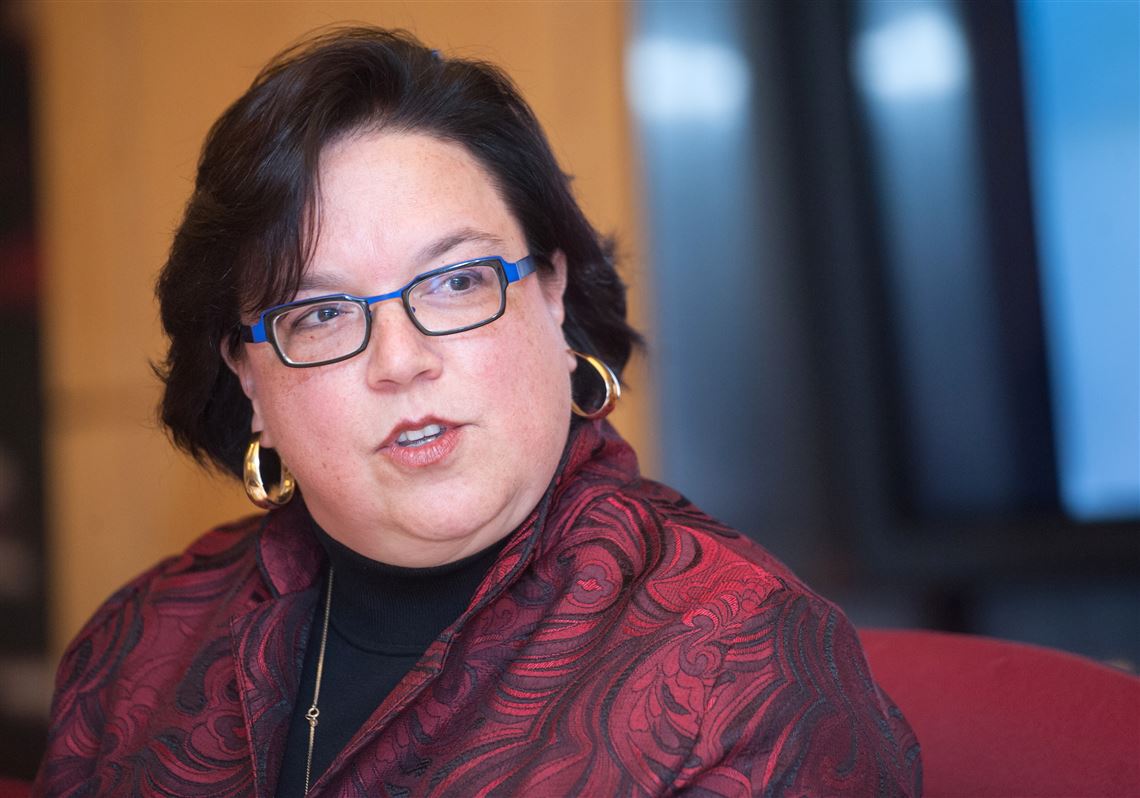For some television stations, there was money — a great deal of it — in the air.
Licensed airwaves, commonly known as broadcast spectrum, were recently auctioned off by the Federal Communications Commission in a years-long process that will see some stations eventually go off the air, including five low-power stations in the Pittsburgh area.
The changes won’t affect Pittsburgh’s larger stations, such as KDKA, although WQED will be moving to a different frequency within the next 39 months. Meanwhile, the sale of the smaller stations’ broadcast licenses reaped a financial windfall for their owners.
The first-of-its-kind auction was sanctioned by Congress. It concluded in March, and wireless providers such as Verizon, T-Mobile and Comcast snapped up space on the spectrum to repurpose it for their own commercial use. Satellite providers such as Dish Network also shopped.
The proliferation of devices such as cell phones, laptops and tablets created the demand, and auction buyers were willing to pay TV station owners more than $10 billion in total for their frequencies.
An additional $7 billion will go to the federal government. The FCC will spend years on the process of reassigning roughly 1,100 TV stations and services to other frequencies.
If demand was driven by the growth in digital devices, the supply was fed in part by the shift in how Americans are getting their shows.
Imagine over-the-air frequencies as a highway. There are only so many lanes, and some are larger than others. Television stations own the biggest chunk of this real estate, but with many people watching via cable or internet-connected devices, the necessity to broadcast over the air is diminishing.
Television stations large and small were given the chance to free up space by selling off some, or all, of this real estate. The 175 stations that chose to participate had several options after selling, including moving to a lower space on the spectrum (such as UHF), merging/renting spectrum with another station, or closing.
The auction was conducted in stages, with results made public to all within the past week.
The “industry and Congress came up with a plan whereby they would generate spectrum to be used for wireless use,” said Don Everist, a consulting engineer in Washington, D.C. “They would offer broadcasters a certain amount of money if they wanted to somehow change their facilities or go off the air.”
Even if a station sold all of its broadcast spectrum, it could continue to operate on cable or through the internet. This is not true of public broadcast stations such as Pittsburgh’s WQED, however, whose mission states it must be available to the entire community, which means over the air.
WQED did sell a portion for more than $9 million and has three years in which to change its broadcast equipment in order to move to a low-VHF frequency.
After the announcement in February, Deborah Acklin, WQED Multimedia president and CEO said, “I’m thrilled, I’m excited, it’s miraculous. It’s a reversal of fortune for this community institution that is truly historic.
“We have in some way, shape or form been burdened by financial issues for 30-plus years and this wipes it all away in one fell swoop.”
At least one public broadcast station, Howard University’s WHUT in Washington, D.C., reconsidered and withdrew from the auction. Other universities took the plunge: WPBO in Charleston/Huntington, W.Va., is owned by Ohio State University and will go off the air, having sold its broadcast license for $8.8 million, while Ohio University’s WOUC in Columbus made $18.4 million and will be moving to low-VHF.
Months before the auction began, Pittsburgh network affiliates KDKA, WTAE and WPXI said they had no intention of participating.
Some small stations made huge amounts of money; WWTO-TV, a commercial enterprise in Chicago, is owned by Trinity Christian Center of Santa Ana Inc. It will receive $304 million and go dark.
Five Pittsburgh-area, low-power stations owned by Over The Air Broadcasting will be closing their doors. The company made more than $73 million in the auction, selling spectrum from WEPA Channel 59, WEMW, WNNB, WPCP and WVTX.
Even after the five stations disappear, OTA Broadcasting will have stations broadcasting Cozi, Movies! And Retro TV in Butler, Charleroi, Kittanning, Uniontown, Washington and Weirton, W.Va. Carol LaFever, chief operating officer for Fairfax, Va.-based OTA, said she expects to retain carriage on FiOS TV.
But Mr. Everist said it is unclear if other stations around the country that will go off-air have plans for where their programming will be broadcast in the future.
“Whatever their programming is — it’s locally oriented probably, that’s the only way they’ve been able to survive — where will they go?” Mr. Everist said. “I don’t think anyone knows that yet.”
Pittsburgh’s Ron Bruno is one of the managers of Fifth Street Enterprises LLC, a Los Angeles investors group that owns WBOA 29 in Kittanning. After selling its spectrum for $19 million, that station will eventually go dark.
The same goes for Greensburg’s WQVC 46. It will go off the air, having earned its LocusPoint WQVC Licensee of Pleasanton, Calif., $11 million.
In Youngstown, Ohio, Nexstar Media Group’s low-power WKBN-TV brought a sale price of $34 million and has a different strategy for continuing to broadcast over the air. It sold its spectrum but will share a transmitter with WYTV, located just down the road.
Brett Jenkins, chief technology officer for Nexstar, said, “The good news is, no one will lose service over this.”
Before the auction process began, there was speculation as to how much bidders would be willing to pay. Amounts varied wildly, and now that it is finished, there is still debate as to the level of the auction’s success.
In January, outgoing FCC chairman Tom Wheeler made his own pronouncement:
“The world’s first spectrum incentive auction has delivered on its ambitious promise. Reaching the Final Stage Rule means the benefits of the auction are indisputable. We will repurpose 70 MHz of high-value, completely clear low-band spectrum for mobile broadband on a nationwide basis.
“On top of that, 14 MHz of new unlicensed spectrum — the test bed for wireless innovation — will be available for consumer and new services. The auction will provide $10.05 billion to broadcast television licensees who participated and billions towards [federal] deficit reduction.
“There is still a long road ahead to successfully implement the post-auction transition of broadcast stations to their new channels and bring wireless and unlicensed spectrum to market,” he said.
“This will be an extremely important task for my successor and the new commission; I wish them well.”
Rob Owen: rowen@post-gazette.com or 412-263-2582. Andrew Goldstein: agoldstein@post-gazette.com or 412-263-1352. Maria Sciullo: msciullo@post-gazette.com. The Associated Press contributed.
First Published: April 20, 2017, 4:00 a.m.
















